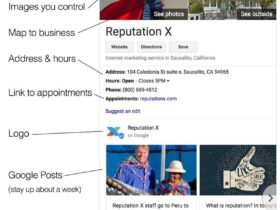Social networking, these days, is a great way of communicating. While this means that it has its many benefits, it also holds legal importance, the top among them being defamation.
Given that millions of individuals around the globe communicate their ideas and knowledge on the Internet, it is essential to comprehend under what conditions a social media post can be regarded as defamation.
Suppose you are hooked up on legal issues or want to be on the uncontroversial side when posting something online. In that case, it is invariably a sound idea to consult a social media defamation lawyer in Perth. However, knowledge of what can be defamatory and what’s okay to post is essential. Here’s a quick take on all the important facts:
What Is Defamation?
An act of defamation takes place when a false statement is made concerning a person or a business, with the result of damaging their reputation. The two types are:
- Libel: Involves publication of written or visual false statements (like social media posts, blogs, or articles).
- Slander: Spoken false statements.
To be actionable as defamation, a statement must possess the following four characteristics:
1. It is false.
2. It has been communicated to a third party.
3. It has injured the reputation of the targeted individual.
4. There is no applicable defence (like truth or fair comment).
Common principles and the Defamation Act 2005 govern defamation law in Australia. In contrast to certain jurisdictions where public figures must prove actual malice, the Australian standard focuses on whether the statement in question caused harm to the person.
How Social Media Can Lead to Defamation Claims
Facebook, Twitter, Instagram, and LinkedIn are a few of the social media sites that allow individuals to convey their views. However, casual or angry posts can lead to a defamation claim on social media. Illustrative examples include:
Posting false claims about a person.
- Making wrongful statements against a corporation.
- Harmful content was reposted from another individual.
- Spreading rumours or falsehoods.
- Posting manipulated images or videos that damage someone’s reputation.
Even if deleted, the post could still serve as a basis for the claim if it was shared or displayed widely before the initial author withdrew it. Therefore, a lawyer practising social media defamation in Perth could answer the question of whether the post is indeed defamatory.
Legal Consequences
Defamation laws in Australia are strict, and postings made on social media may lead to serious legal trouble. Some of the consequences that one may face if found guilty of defamation are:
- Courts may order the payment of damages for the injury caused.
- The court orders to removal of the offending post.
- An order to publish an apology or correct the error.
- Payment of legal bills; sharing in the payment of legal costs.
The recent high-profile defamation cases in Australia show how dire certain defamatory posts can become. If you have been defamed or have had allegations of defamation launched against you, you must get assistance from your defamation lawyers in Perth.
Defenses Available Against Claims for Social Media Defamation
One can defend oneself against defamation claims leveled on social media in several ways, as follows:
Truth: If your statement is true, you will be immune from defamation because of it.
Honest opinion: If your post is my honest opinion, entailing facts, you could also have a defence.
Public Interest: Protected for stating something that becomes important for the public interest.
Qualified privilege: Some statements are made during certain occasions, like reporting to law enforcement officials about a crime.
Innocent Dissemination: You might have the protection as an innocent disseminator if you passed on the harmful content, not knowing it was false.
In case of legal action against you, a social media defamation lawyer in Perth will assist you.
How to Avoid Defamation through Social Media
To avoid defamation, do the following:
- Check facts before uploading them to a person’s social networking site or business.
- Proof is essential when making accusations.
- When it comes to opinions rather than fact-stating, use a disclaimer.
- Think before you click if it would damage someone’s reputation.
Even private groups will still have defamation laws if you talk badly about someone and it gets outside your group.
What You Should Do If You Get Defamed on Social Media
Defamation victims should act fast in the following manner:
- Collect Evidence: Screenshots or copies of the defamatory post.
- Demand Removal: Request the platform or person to remove the post.
- Legal Advice Seek: Consult some defamation lawyers in Perth to know the options available.
- File Lawsuit: If required, take legal action for compensation and rehabilitation.
Conclusion
Social media defamation is as bad as any other defamation. It can land you in serious legal trouble. Whether you are worried about what you post or have already been defamed, you must know the laws about such defamation.
The defamation lawyers services Perth can help understand and smooth the way to attaining legal solutions. As online communication increases, it becomes even more imperative to know the legal ramifications of online statements and ways to stay out of controversy.













